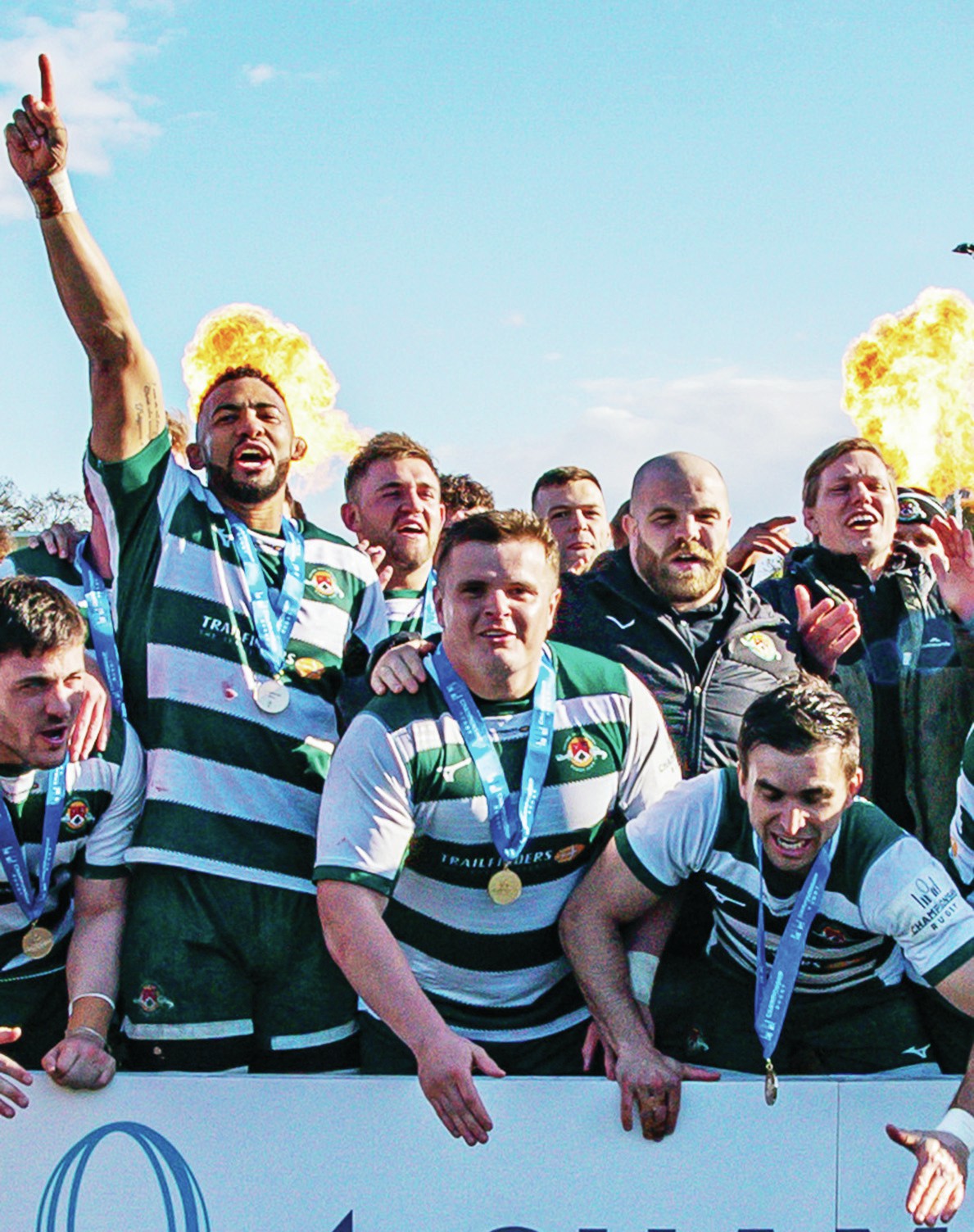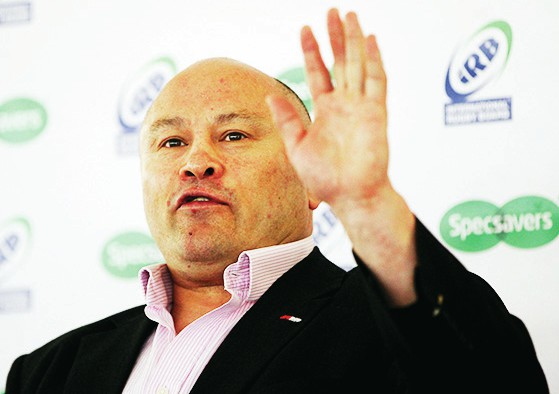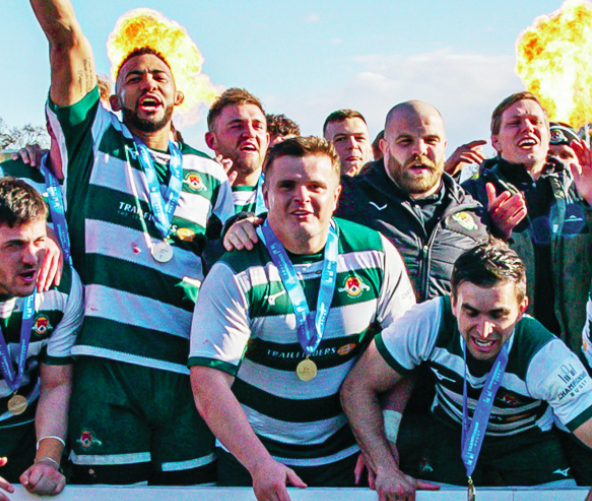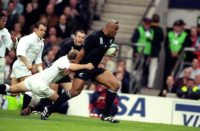JEFF PROBYN
A FRONT ROW VIEW OF THE GAME

Interesting to see my old mate Brian Moore professing in his newspaper article that English rugby should stop wasting millions of pounds on substandard players and that clubs should be forced to toe the RFU line
Sadly he wasn't talking about our so-called professional elite in the Premiership, but those in lower leagues where clubs are paying their players.
Raising the fact that a number of grassroots clubs who have chosen to invest what would be relatively small sums of money to help improve and/or maintain playing numbers, seems to me quite naive. Brian appears to think that their investment in players is taking money that would otherwise be used to employ local rugby development officers, help schools or pay for ground improvements but he's wrong.
Development officers were employed by the RFU and were included as part of its funding of the grassroots game. A part of their job was to help and encourage local schools to play the game as a section of the legacy from Jason Leonard's Presidency of the RFU in his rugby for ‘All Schools' programme.
The truth is, just like the owners in the Premiership, clubs in the lower leagues are free to make their own decisions on how to spend their money which has not been donated by the RFU. If they choose to spend that in an attempt to eventually reach a part of the league structure that is still actually receiving funding from the RFU, then good luck to them
Brian, right, suggests that the RFU should in some way limit the number of clubs that can pay money to their players. Apart from the obvious almost impossibility of an enforcement, this would likely impact on ambitious clubs and break yet another promise issued at the time the league structure was sold to the clubs. Having now put in a glass ceiling in all but name, the RFU would also be stopping free and unfettered access to all leagues, an essential part of what encouraged clubs to accept the new league system back in 1987.
Part of the reason why clubs in the lower leagues pay players is actually down to the RFU, who at the time hung out the carrot of an incremental increase in funding as teams progressed up the league structure.
In truth, that was the first promise broken by the Union virtually as soon as the leagues were put in place. However, for the teams that had the ambition and potential, it came too late as many had already begun paying their players to train etc. Even though a few achieved promotion, but without the extra promised funding, they couldn't stop paying players as many would have left their club to either join a rival who were still paying, or given up the game completely.
“With numbers falling, is it any wonder clubs do what they can to keep what players they have?”
I must admit I am slightly surprised by Brian's comments as he was at the forefront of the battle to turn the RFU from its amateur status to a professional paid game when we were playing.
■ Sad news to hear that we have lost another great member of the Front Row Union, Tom Smith. A great prop who helped disprove, on the Lions tour of South Africa, the idea that all props have to be big to compete at the top of the game.
Sharing exactly the same weight 16st 3lb and height 5ft 10as me I would loved to have played against him and somehow I doubt that he would have cut off his sleeve for the game.

He even oversaw our first attempts back in 1991 with a players company under the name of Player Vision linked up to a private company called Parallel Media, who promoted the team with the ‘Run with the ball' campaign. While working in law at the time, he along with Rob Andrew and Will Carling, sat on the board to safeguard the squad's interests and to ensure we fulfilled our contractual agreements.
Unfortunately that venture showed some of the pitfalls of a professional game, as loyalty and friendship took a back seat. However at that time, it became obvious that the game at all levels, except perhaps international, could not afford to go professional, a fact that is also apparent now with virtually all Premiership clubs running at a loss despite RFU funding.
Clubs at all levels have never and still don't have the level of support to fund a professional set-up even at the top of the club game where all are reliant on owners and the RFU to help fill the huge hole the wage bill has created.
The question I would have to ask Brian is: Did he honestly believe that the move to professionalism would only be taken by those who could afford it? If that were the case we still wouldn't have a professional game at club level. We all know that many clubs at all levels, even the Premiership, are struggling to put out teams after the pandemic with player numbers unfortunately still falling, particularly in the men's game.

As grassroots clubs battle to survive with little or no RFU funding as a result of the monies contracted to the Premiership, is it any wonder they do what they can to keep what players they have?
Even across the rugby world there are poorer countries forced into paying players in the hope of keeping their players at home and just for the possibility of competing in a World Cup.
Just look at the top club leagues of the main rugby nations with money to spare – the Premiership, Top 14, Japan Rugby League 1, Major League Rugby (USA) and the United Rugby Championship – and the number of foreign players playing in each to understand that in a professional game, money talks.



























